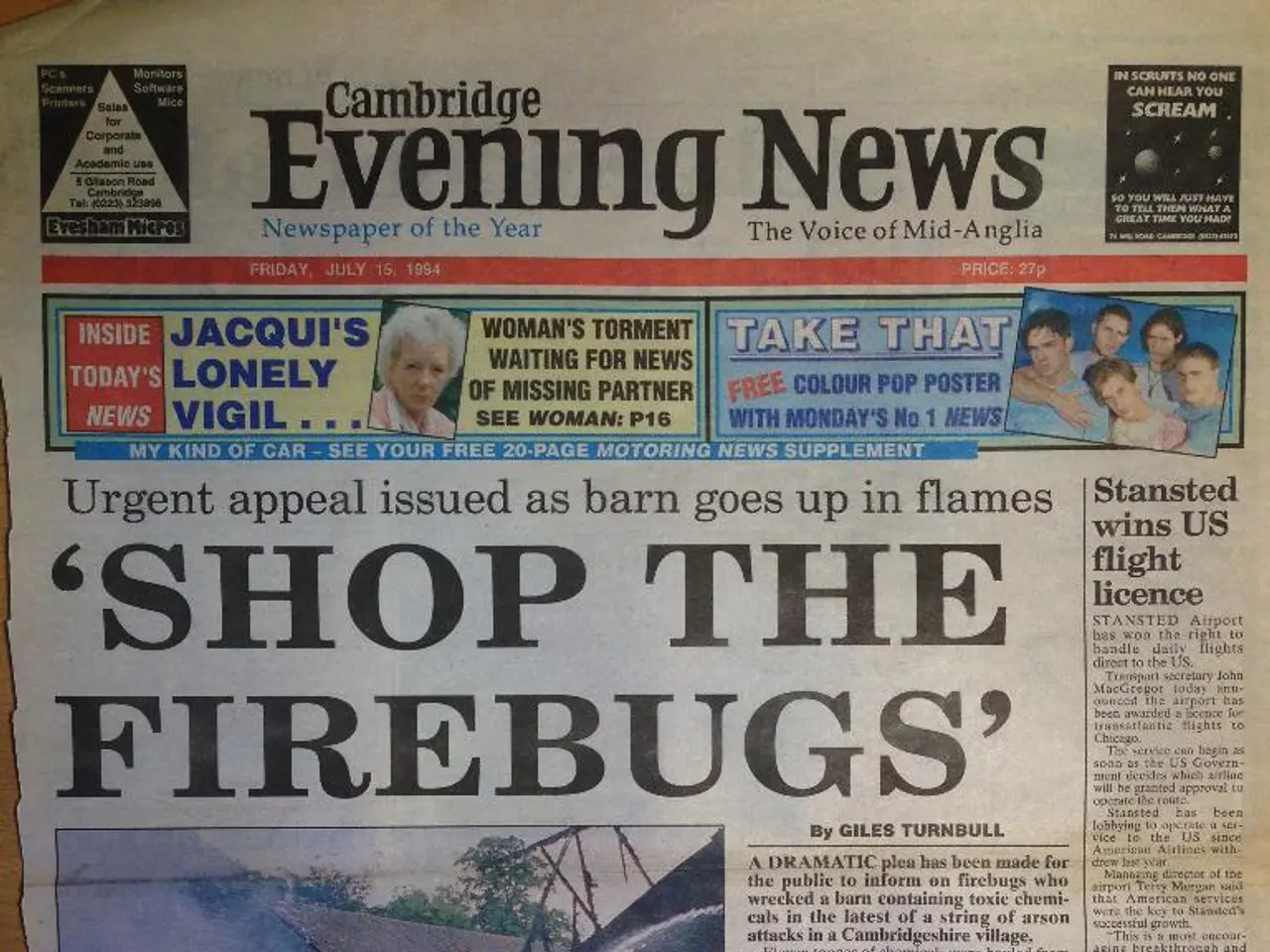Business Struggles: Demise Through Multiple Small Challenges
In the digital world, a crisis is unfolding, transforming the landscape of publishing in five interconnected steps.
- Zero-Click Expansion: The rise of generative AI has led to a shift in how information is searched and consumed on the internet. Search engines are now providing answers directly, reducing the need for users to click through to publishers' websites.
- Declining Publisher Traffic: With answers being served upfront, traffic to publishers' sites has significantly decreased, leading to a decline in revenue from advertising.
- Content Quality Degrades: Faced with weaker economics, many publishers have been forced to cut budgets, resulting in lower-quality content or even closure. This depletion of authoritative sources creates a vacuum that AI-generated content can fill.
- User Reliance on AI Summaries: As users become accustomed to trusting AI-mediated answers, even as the underlying source base weakens, they default to AI-generated overviews, shifting trust from publishers to platform-mediated synthesis.
- The Shrinking Web: With fewer clicks and less traffic, the open web is thinning out, leaving AI systems to feed on an ever-diminishing pool of sources.
This crisis is more than a revenue problem; it's a structural one. The very supply of quality information that AI systems depend on is eroding.
Power has decisively shifted to platforms such as Google, OpenAI, and Anthropic, with publishers becoming vendors of raw data, stripped of brand equity and user relationships. If your business model relies on SEO, your margins will shrink.
However, publishers who own unique, high-value data may defend their economics by becoming indispensable to AI systems. TollBit-style models could enable publishers to monetize content at the crawl or synthesis layer, not just at the click layer.
The old playbook of scaling content for search visibility is collapsing, demanding distribution resilience: direct channels, proprietary ecosystems, and AI-era monetization strategies. The publishing world is splitting into two camps: commodity content and moat content. Commodity content faces extinction, while moat content may survive but requires deliberate reinvention of the business model.
If your brand doesn't own unique data, you'll be commoditized. If you depend on web distribution, your traffic pipeline is at risk. The internet's foundational bargain, where free content is supported by ad-driven traffic, is breaking due to zero-click results and AI-generated overviews.
AI eats context, unlike social platforms, as it doesn't just distribute content - it consumes, summarizes, and substitutes it, shrinking the publisher's role from destination to raw input. As user clicks shrink, publishers lose audience and monetizable impressions, leading to less ad revenue, making investment in content harder to justify.
A shrinking number of publishers survive, primarily large, capitalized players, leading to a diminished diversity of voices. Revenue-sharing models could be a potential intervention, where platforms distribute a portion of AI-driven revenue back to publishers to maintain content supply.
In conclusion, the publisher economy is facing a structural crisis that goes beyond revenue problems. The very supply of quality information is eroding, and new strategies are needed to maintain content supply, protect brand equity, and ensure the survival of diverse voices in the digital landscape.







